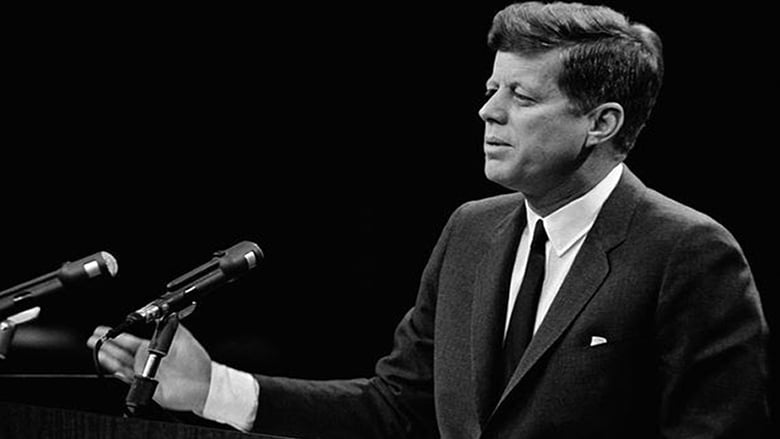Most of what presidential candidates say about domestic policy is aspirational. Big proposals require congressional assent, which can be tough to secure even when the new president’s party controls both houses by large majorities.
By contrast, the Constitution, on its face and as interpreted through more than two centuries of practice, gives the president primacy and significant freedom of action in foreign policy. Whichever Democrat emerges from the primary process will have a good chance of reshaping America’s role in the world, so it’s worth paying close attention to the candidates’ comments on foreign policy.
Despite the short shrift given to foreign affairs on the stump and in debates, four of the five leading Democratic candidates have delivered major foreign-policy addresses that describe the thrust of what they would do in office.
One common argument, articulated by John F. Kennedy in his final speech, cuts across the differences of policy and ideology that divide the Democratic candidates: “A nation can be no stronger abroad than she is at home.” Accordingly, every candidate offers policies designed to help working- and middle-class Americans and strengthen democratic institutions. Other common threads include renewing alliances, strengthening diplomacy and fighting climate change.
In a speech last month, former Vice President Joe Biden proposed to put renewed cooperation with the world’s democracies at the center of his foreign policy. To do this effectively, he argued, America’s democracy must set an example, which at present it does not. He promised to reinforce U.S. democratic institutions and practices, restore moral leadership (especially on immigration), and make America’s foreign policy reflect the interests of its beleaguered middle class. “Economic security is national security,” he said.
Mr. Biden believes renewed democratic zeal will help the U.S. resist the advance of what he terms “authoritarianism, nationalism and illiberalism” and fight threats such as Russia’s military adventurism and China’s predatory economic policies. But domestic strength coupled with effective diplomacy will not suffice, he implies, which is why he pledges to reform rather than cut the defense budget.
Sen. Bernie Sanders also proposes to build “a global democratic movement to counter authoritarianism” (the title of an address he delivered last October), but the resemblance to Mr. Biden’s policy ends there. Mr. Sanders identifies right-wing populism—and with it, oligarchy and kleptocracy—as the principal threat. To counter it, he advocates an international movement to strengthen “democracy, egalitarianism, and economic, social, racial, and environmental justice.” In an earlier speech, he also urged renewed U.S. support for an international order in which law, not might, makes right.
The challenges facing America, Mr. Sanders insists, are the product of the economic status quo in recent decades. He wants to reorient economic policy to assist ordinary people, at home and abroad. Fighting international corporate tax evasion, climate change and pro-corporate trade policies are keys to this strategy. So is cutting defense budgets, in the U.S. and around the world, and redeploying those resources to fight poverty.
Last November Sen. Elizabeth Warren gave a speech that targeted America’s post-Cold War economic policies as the main source of its problems at home and abroad. Rising economic inequality has weakened support for democracy. Elite hopes that the spread of markets would create open societies in Russia and China have been dashed against the rocks of world events. Misguided trade policies and misbegotten wars have drained resources and undermined the middle class.
Ms. Warren would use trade negotiations to crack down on tax avoidance by multinational corporations and fight China’s forced technology transfers and intellectual-property theft. She would end “endless wars,” reduce the defense budget and transfer the proceeds to peaceful international engagement and domestic priorities such as education, infrastructure and a “twenty-first century industrial policy.”
Mayor Pete Buttigieg ’s address on foreign policy and national security this June is the speech Joe Biden might have delivered if he were 37 rather than 76. Its title says it all: “America and the World in 2054: Reimagining National Security for a New Era.” Mr. Buttigieg criticized the Republican and Democratic foreign policies of the past generation as incoherent and obsolete. “Democrats can no more turn the clock back to the 1990s than Republicans can return us to the 1950s,” he declared, “and we should not try.”
Like Mr. Biden, Mr. Buttigieg advocates recommitting to international alliances and agreements, including the Iran deal and the Paris climate accords, that President Trump has repudiated. Like Mr. Biden, he wants to reform but not necessarily reduce the defense budget. And like all the major candidates, he believes the U.S. cannot strengthen democracy abroad if its own democracy is weak.
In a little more than a year, Americans will decide whether they prefer the Democrats’ stance on these matters to the bare-knuckled bluntness of Mr. Trump’s America First foreign policy and zero-sum approach to international economics.





